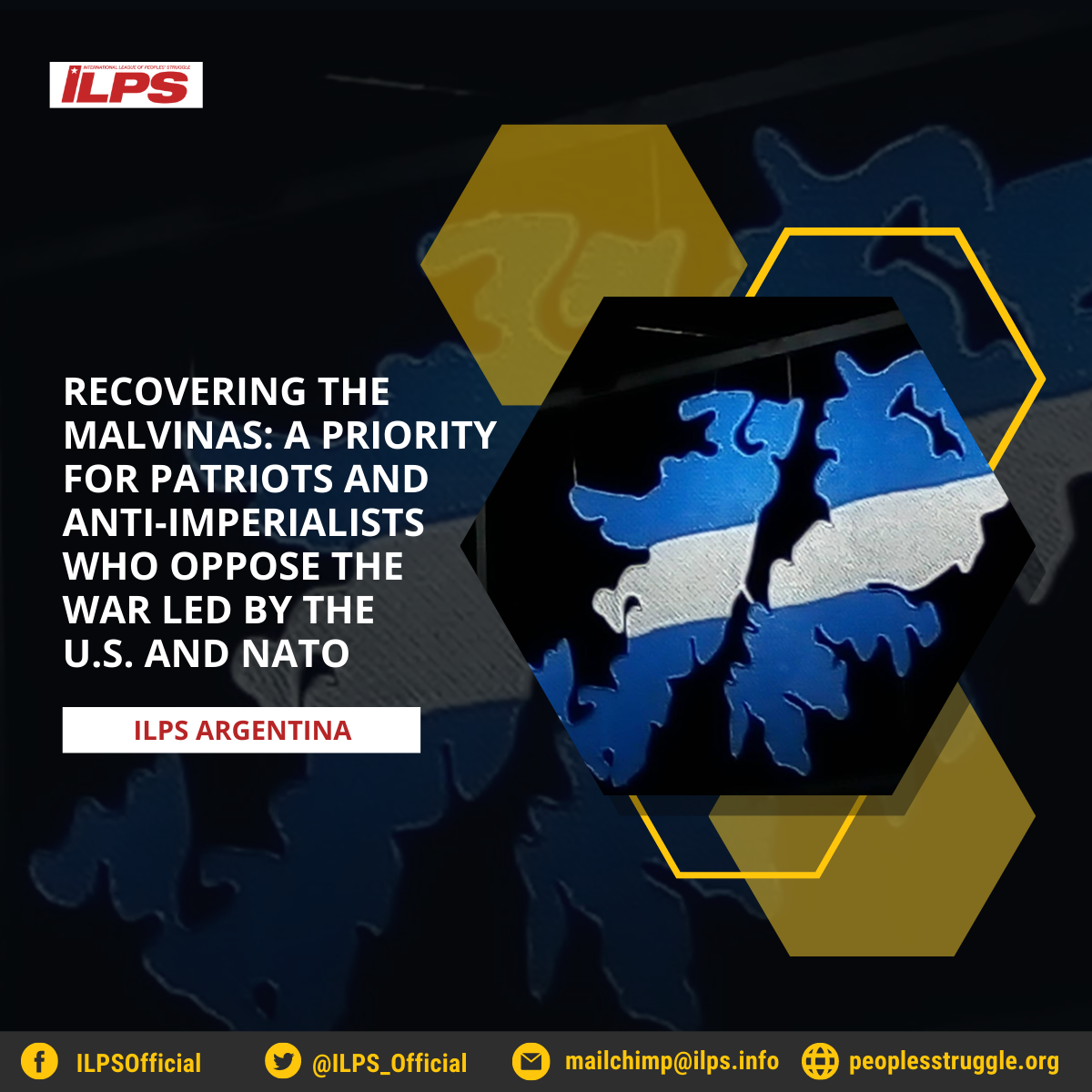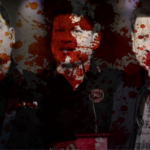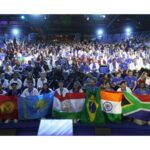
Past and present of an imperialist occupation
41 years after the attempt to recover our Malvinas Islands, we pay tribute to the fallen who gave their lives, fighting against the British occupation. That attempt ended in defeat, since the pro-Yankee military dictatorship improvised this action –although significantly felt and supported by the people- to give air to the unsustainable wear and tear of its bloody and reactionary government, underestimating the powers that this military incursion affected. Beyond the failed leadership and the opportunism of the dictators, the deployed forces – in which a significant number of “conscript soldiers” participated – demonstrated that a technically superior enemy can be faced and fought heroically motivated by a just cause: defense of national sovereignty.
The resistance and skill of our soldiers and non-commissioned officers in numerous battles were remarkable, causing numerous casualties to the United Kingdom Task Force, made up of select weapons and professionals. The lack of conviction and lack of courage of the commanders and of the majority of the officers were also notable, except for some, such as the Air Force pilots, who performed a very worthy performance, constituting a real problem for the English.
The “Malvinas cause” was generally assumed as their own by sister countries in Latin America and the Caribbean, who were fully willing to supply equipment and even fight alongside us, something that the dictators appreciated, but at the same time discarded.
That defeat sharpened the contradictions between the Argentine ruling classes and the growing popular resistance sealed the fate of the dictators. The “democratic” governments were limited – until today – to the effusive declarations and positions demanding sovereignty over the islands, while the economic relationship with the invader was restored, so much so that business and investment prevailed over the conflict. Far from a policy of détente, the United Kingdom dedicated itself to increasing its presence and developing a two-legged plan: making the area an economic-extractivist pole based on maritime wealth and at the same time turning the islands into a NATO base, pointing to the bi-oceanic corridor, putting the war objectives and Antarctic resources at the center of the dispute given the preparations for the crisis and emergencies, typical of the large-scale war that is coming.
The whole scenario changes. The inter-imperialist dispute and its product: War
The region, and particularly Argentina, is among the territories in dispute by the imperialist powers that are fighting – on the way to war with each other – business, resources and geography in a strategic key. On Argentine soil, in the province of Neuquén, there is a base of the Chinese People’s Liberation Army, under the guise of an aerospace research observatory. The purchase of 5th generation combat fighters from the Chinese is currently advanced, which would be added to their involvement in more development of nuclear power plants, the extraction and industry related to lithium and the advanced plan to establish a base in Tierra del Fuego multifunction operation, for the development of the extraction of resources and operations both in southern Patagonia and in the Argentine Antarctic zone.
The US and NATO intend to maintain and extend their influence – sparse in recent decades – in view of the growing Chinese and, to a lesser extent, Russian presence in our area. In Paraguay, progress is being made with the US military presence, before based on the fight against terrorism in the so-called “triple border”, now for the control of the movement of illegal cargo linked to drug trafficking, elements of the army are already involved, in addition to the intelligence that always operates. Something similar, they intend to install – DEA through – under the excuse of the strong territorial development, producer and exporter of drug power in the area of the great Argentine Rosario, which would help control the flow of merchandise and the actions of this activity, in the ports and waterways in the area, one of the most important in the world.
In turn, they have projected other initiatives of a concrete presence of some form of US military presence, such as the one projected in the province of Neuquén –important due to its enormous participation in the production of gas and oil- in the development phase, although highly resisted. by local popular organizations. The new situation opened by the inter-imperialist dispute, has triggered the rearmament of the Latin American states and the powers resort to their deterrence methods, from financing or contributions to the infrastructure as well as operating towards the indebtedness or the cancellation of projects, to direct threats such as those that come from the Pentagon itself, as long as some of the governments in the region exceed their autonomy or become more involved with China or Russia.
In the case of the purchase of planes for the Argentine air force, the United Kingdom had to withdraw its long embargo executed at the expense of the war they won, allowing the Argentine state to have almost free access to the fighters offered by the US and other productions of partners or allies.
The path of defeat and surrender or the path of liberation
The last governments in Argentina have travelled a zigzag path that deepened the structural crisis that our society and our economy are going through. Taking advantage of certain conditions in the stadium of the growing struggle between the imperialist powers, there was an attempt to play an independent game via Mercosur-BRICS, up to the current and dangerous duality consisting of the rapprochement with the US and the renegotiation of the scandalous and fraudulent debt contracted with of the IMF that puts the country at its worst moment, until the adherence to the new silk route: an arming of the Chinese to export their capital surpluses, while they flood the markets with subsidised goods and develop strategic infrastructure towards their own interests.
So what is at stake is extremely important for our sovereign existence as a nation and above all as a people. There is a growing and firm trend of resistance and progress in popular consciousness and action towards a new type of democracy, in view of the failure of an entire political leadership that cannot stop local monopolies, their foreign partners and much more; except for imperialism’s plans to cede more sovereignty and more resources, while our population plunges into misery, low wages, and insecurities of all kinds. Assume, from the workers and popular forces themselves, that it is necessary to advance, making use of the right to rebel street irruption against surrender and hunger, towards a new type of democracy and a new popular, patriotic and anti-imperialist government, which puts as its center the sovereign needs of the workers and the people.
Within this framework, the fight against all dependence and against the inter-imperialist war It acquires a special significance in the Malvinas: a government that emerged from the popular insurrection should place the recovery of the islands as its center, as a brake on the escalation of warfare from an independent and liberating perspective that lights the way for the countries and peoples of Latin America and Caribbean.
For a government that emerged from the rebellious struggle of the people, that faces the sovereign tasks of national recovery and liquidates the imperialist, monopoly and financial capital property!
Out with the IMF, out with the Yankees and their bases in Latin America and the Caribbean!
Let’s stop the imperialist war with the people’s war ! Let’s recover the Malvinas Islands from the British occupation and NATO!
ILPS Argentina Chapter



